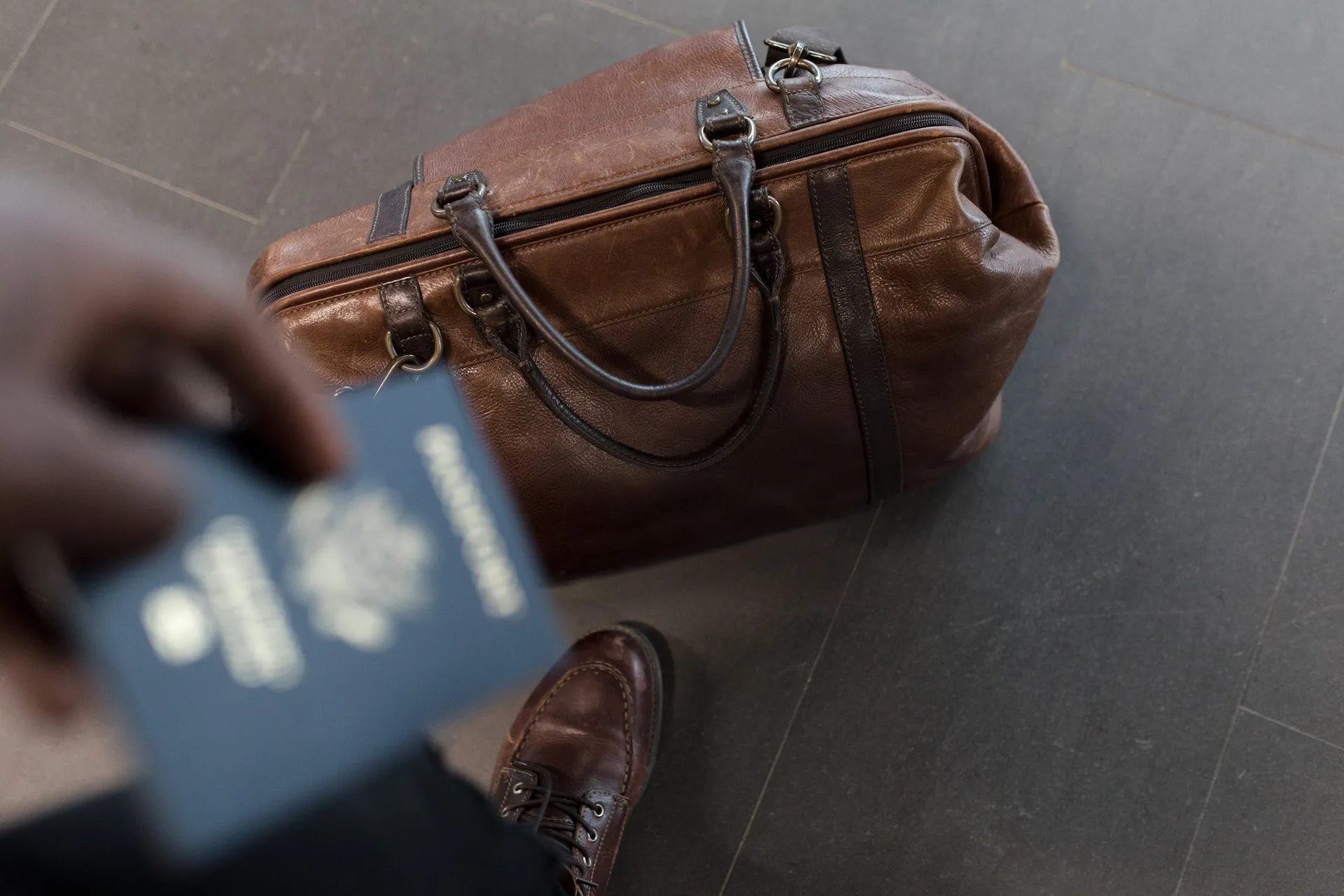British Irish Visa Scheme (BIVS)
If you’re a citizen and resident in China or India, you may be eligible for the British-Irish Visa Scheme (BIVS) that lets you visit both countries with a single visa.
Contact us today via +44 (0)333 414 9244 or +353 (0) 61 518 025 for immediate guidance on your BIVS visa, immigration, and citizenship processing. We are here to help you in person, via the phone, or online.
Read our 1001 reviews
Request a call back from our immigration experts
Benefits of Choosing IAS‘ Ireland Immigration Lawyers
When it comes to obtaining an Ireland visa or permit, IAS Ireland immigration lawyers are well-equipped to help you.
With IAS’ track record of successfully helping clients visit or immigrate to Ireland successfully, we can help you achieve your goal.
Our dedicated immigration lawyers provide our services through a comprehensive and personalised approach. With IAS, you enjoy:

Compassionate support from an experienced immigration lawyer dedicated to your success



Support in gathering supporting documents and completing a high-quality application.



Confidence that your case is being handled by an experienced team.



In-house document checks done by lawyers who are well-versed in Ireland immigration matters.
Services we Provide
What is the British-Irish Visa Scheme?
This is a reciprocal agreement and memorandum of understanding between the United Kingdom and Ireland. It was launched in June 2014. The aim of the British-Irish Visa Scheme (BIVS) is to foster tourism in both countries.
It follows the Irish Short-stay Visa Waiver program that permits nationals of 18 countries to enter Ireland with UK visas. The difference is that the British-Irish Visa Scheme allows travel in two directions: into Ireland and the UK.
As a reciprocal agreement, it means that the UK will recognize Ireland’s short-stay visas and vice versa. Hence, an Irish short-visa holder won’t need to get a British visa to enter the UK. The scheme is open to nationals of particular countries and allows applicants to travel freely through the Common Travel Area (CTA).
The scheme also allows free travel to Northern Ireland. However, it restricts access to the Channel Islands and the Isle of Man. China and India are currently the only countries the scheme supports.
Irish and UK Visas Eligible for British-Irish Visa Scheme
The British-Irish Visa Scheme only recognizes short-stay visas. As mentioned earlier, the scheme is only open to Chinese and Indian nationals. They also must be residing in China or India, respectively.
If you meet these conditions, you can enter the UK under the British-Irish Visa scheme if you have:
- An Irish Family/Friend Visit Visa
- An Irish Tourist Visa
- An Irish Conference/Event Visa
- An Irish Business Visa
In the same vein, you can enter Ireland under the British-Irish Visa Scheme if you have:
- A UK Standard Visitor Visa
- A UK Business Visitor Visa
- A UK Child Visitor Visa
- A UK Prospective Entrepreneur Visitor Visa
- A UK Private Medical Treatment Visitor Visa
- A UK Student Visitor Visa
- A UK Paid engagement visa
If you possess any other Irish or UK visa that doesn’t fall into the above categories, you’ll need to apply for a separate visa to enter Ireland or the UK. For example, you cannot enter the UK under the British-Irish Visa Scheme with an Irish work or study visa.
A UK visit visa that are valid for more than six months are not eligible for this scheme as they’re not short-stay visas. Also, children under 18 years cannot travel between Ireland and the UK under the British-Irish Visa Scheme unless they are in the company of an adult.
Immigration rules and requirements of the British-Irish Visa Scheme
The British-Irish Visa Scheme requires all participants to be more than 18 years old. Also, they must have any of the Short Stay/visit visas listed above. Several other rules and visa requirements apply to this scheme.
If you have an Irish short-stay visa, for instance, you must first travel to Ireland before you can enter the Common Travel Area (CTA) in the UK. The rule states that you must first visit the country whose visa you’re carrying. When you want to return to Ireland or the UK, you won’t need a re-entry visa.
Another rule to note is that you can only engage in the activities your visa allows. If you’re carrying an Irish short-stay family/friend visa, for instance, you cannot engage in business or paid work of any kind. In addition, there are limits to the duration of your Irish/UK visa depending on the issuing country and the country you’ll be entering. They include:
- With an eligible UK visa, you can only stay in the UK for a maximum of 180 days.
- With an eligible Irish visa, you can only stay in Ireland for a maximum of 90 days.
- With an eligible UK visa, you can only stay in Ireland for a maximum of 90 days. Also, it could count as the remaining validity period of your visa.
- With an eligible Irish visa, you can only stay in the UK for the remaining validity period of your visa. For example, if you have an Irish visa that’s valid for 90 days and stay in Ireland for 30 days before entering the UK, you can only reside in the UK for 60 days.
Required documents for British-Irish Visa Scheme
Eligibility for the British-Irish visa scheme depends on the visa you’re carrying. Hence, the required documents are different for each visa type and country. The required documents for a short stay business visa will be different from that of a family/friend visa. Also, Irish and UK embassies may have different required documents.
Nevertheless, the submission of documents is an important part of the Irish and UK visa process. Documents are reviewed with scrutiny to ensure an applicant is qualified before they get their visa.
Therefore, you must make sure you provide all necessary documents as requested by the embassy or consulate. Generally, you would need to have a visa application summary sheet, international passport, proof of fees payment, and proof that you’ll return home when your visa expires.


How to apply for British-Irish Visa Scheme?
First, you have to acquire an eligible visa. You must apply for your visa from your home country and with the embassy of the country you intend to travel to first. If you’re an Indian or Chinese national not living in India or China, respectively, you can’t apply for this visa.
If all your documents are intact, it’ll take a few weeks to get a decision on your short-stay visa. Once you have your visa, you can apply for the British-Irish Visa Scheme. There are joint application centers in India and China. You just have to find somewhere closest to you. You can either submit your application after getting your visa or apply while your visa application is processed.
How to re-enter the country?
As mentioned earlier, you don’t need a re-entry visa if you enter the UK from Ireland and wish to re-enter Ireland. This is true as long as you travel within the CTA.
If you leave the common travel entry area, you can no longer enter Ireland or the UK if you have a single entry Irish visa. For that, you’ll have to apply for a new visa. If you have a multi-entry Irish visa, you can re-enter Ireland if you leave the CTA and then subsequently enter the UK so long as your visa is still valid.
UK visa holders that leave the CTA, can re-enter the UK and then enter Ireland if your visa is still valid.
Table of Contents
Table of Contents will appear here.Legal Disclaimer
The information provided is for general informational purposes only and does not constitute legal advice. While we make every effort to ensure accuracy, the law may change, and the information may not reflect the most current legal developments. No warranty is given regarding the accuracy or completeness of the information, and we do not accept liability in such cases. We recommend consulting with a qualified lawyer at Immigration Advice Service before making any decisions based on the content provided.
Frequently Asked Questions
The British-Irish Visa Scheme is only for Chinese and Indian citizens and residents. Meanwhile, the Irish Short Stay Visa Waiver Programme is for citizens of certain Eastern European, Middle Eastern, and Asian countries. It allows eligible persons with short-stay UK visas to visit Ireland without obtaining a separate Irish visa.
The validity of your BIVS-endorsed visa varies depending on the issuing country and where you visit. For example, a short-stay Irish visa is limited to 90 days, while that of the UK is 180 days.
Even if you hold a six-month UK visa, you can only stay in Ireland for 90 days. Likewise, if you have a 90-day Ireland visa and spend half of it in Ireland before visiting the UK, you can only stay in the UK for the number of days left on your Irish visa.
Only Chinese and Indian nationals can apply for the British-Irish Visa Scheme. Even if you are a citizen of a country that does not require a visa to enter Ireland, you may still need one to enter the UK. Similarly, those who do not require a visa to enter the UK may require one to enter Ireland.
You can travel back to China or India from the UK or Ireland. What’s important is that you must travel before your visa validity expires.
You should apply for the usual UK or Irish visa. If you don’t want to visit both countries. As a national and resident of China and India, it’s not compulsory that you partake in the British-Irish Visa Scheme.
Note that if you obtain a UK Visa without the BIVS endorsement, you will not be permitted to enter the Republic of Ireland. If you want to visit Ireland, you may need to reapply in your home country or obtain a second Irish Visitor Visa.


What our clients are saying
How our UK Immigration Lawyers can help
At the Immigration Advice Service our lawyers specialise in a wide range of UK visas, nationality and asylum applications and have represented clients in various successful complex and high-profile cases.















